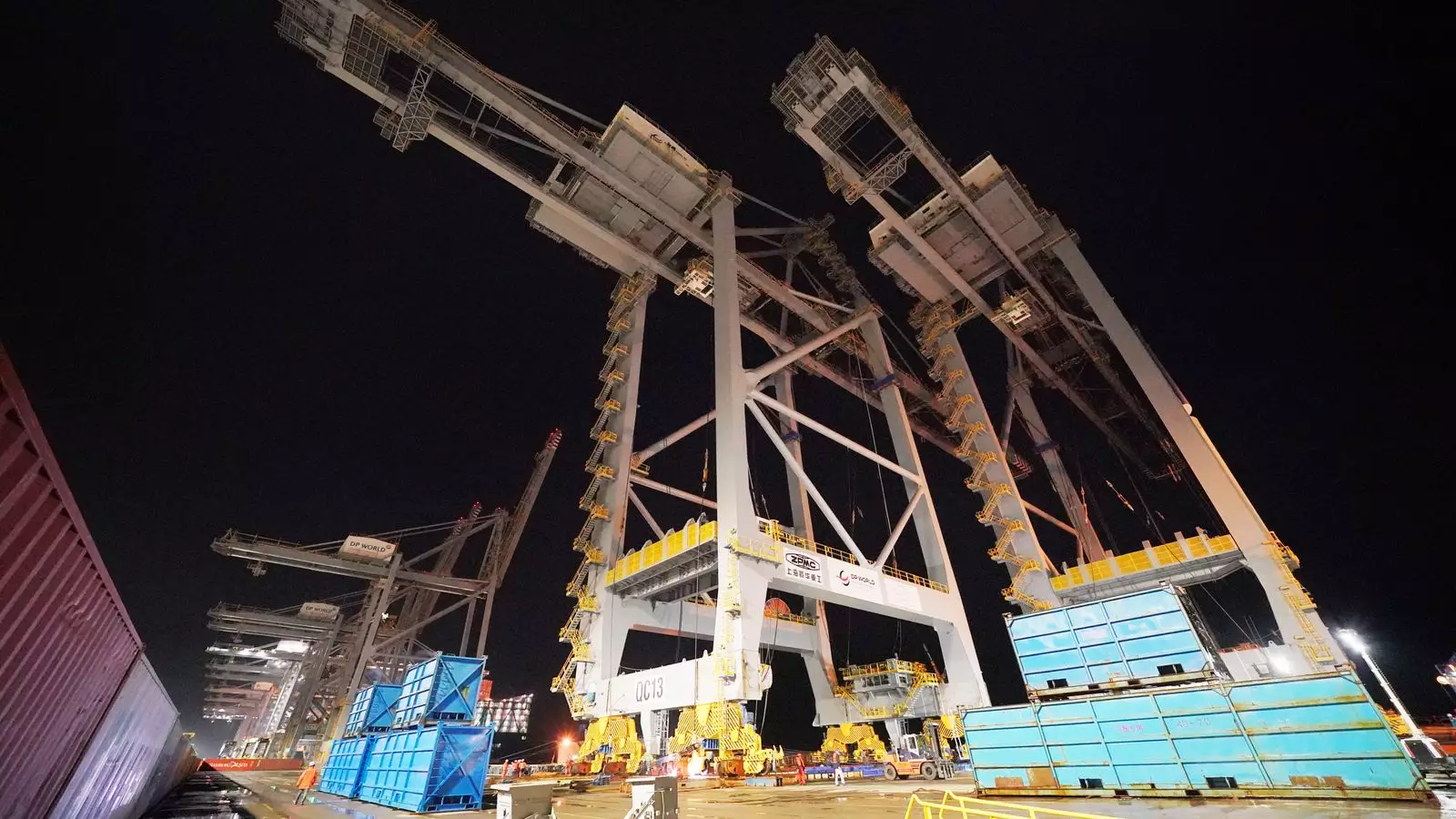Recent developments surrounding a significant £1 billion investment pledge by DP World for the London Gateway port lay bare the complexities of government-business relations in the UK. The announcement, pivotal for the country’s economic landscape, faced an unexpected hurdle due to incendiary remarks made by Transport Secretary Louise Haigh. The emerging scenario is emblematic of the delicate balance that government officials must strike when engaging with business, especially in an era where public statements can heavily influence investment commitments. Such dynamics underscore the need for strident diplomacy in the dialogue between policymakers and industry stakeholders.
The situation escalated when Haigh, amidst rising tensions over labor practices, labeled DP World a “rogue operator,” urging consumers to boycott its operations. This assertion, rooted in public outrage over the company’s controversial decision in March 2022 to lay off 800 British maritime workers in favor of cheaper labor, sparked immediate backlash. Critics argue that such rhetoric can have far-reaching ramifications, not only straining essential investments but also stunting potential job creation in the UK. DP World’s subsequent caution regarding their commitment indicated the precarious nature of keeping the channels of investment open, especially following statements that could be construed as hostile.
In response to the controversy, Business and Trade Secretary Jonathan Reynolds emphasized the necessity of dialogue between the government and DP World. His comments indicated that the government was keenly aware of the potential fallout from Haigh’s remarks and moved swiftly to mitigate the damage. The importance of restoring clarity and assurance in the UK’s investment landscape became paramount, showcasing the critical role of governmental diplomacy. Reynolds’ failure to explicitly confirm the initial jeopardy of the investment, while underscoring its proceeding nature, reflects an attempt to foster confidence both internally and externally—a strategic maneuver amidst perturbation.
The Investment Summit’s Significance
The impending investment summit, a platform designed to rally industry leaders and stakeholders, is shrouded in scrutiny, especially given the timing of the event just before the budget announcement on October 30. The government’s proactive planning in assembling “up to 300 industry leaders” reflects an ambition to revitalize the global perception of the UK as an attractive investment arena. Nevertheless, the engagement with notable figures, such as Elon Musk, raises questions about the government’s strategy in curating investor presence. Reynolds’ evasive responses regarding Musk’s absence suggest that the government is navigating complexities in its outreach, potentially recognizing that not all high-profile individuals align with the current political narrative or business climate.
Public Sentiment and Economic Decisions
Public sentiment plays an undeniable role in shaping investment decisions, particularly when past actions of a company come under fire. The backlash against DP World for its labor policies highlights the intersection of ethical business practices and economic viability. As companies face consumer boycotts, the potential influence on investment becomes a critical consideration for the government. Engaging in conversations that bridge the gap between ethical business practices and economic necessity will be essential for cultivating a sustainable investment environment in the UK. The challenge remains how to reconcile public outrage while encouraging foreign investments that are vital for economic growth.
The episode surrounding DP World’s investment reflects broader themes in economic governance and the significance of strategic dialogue. For the UK government, it is imperative to foster a balanced approach that considers both the public’s perspective and the necessity for investment-driven growth. This situation advocates for a renewed commitment to transparency and effective communication in dealings with stakeholders. By doing so, policymakers can help cultivate an investment landscape built on trust and mutual respect, ultimately steering the UK towards sustainable economic resilience in an uncertain global environment.

Leave a Reply